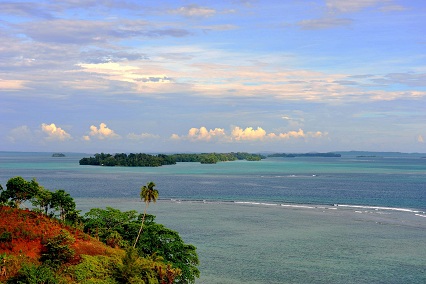Anthropology meets climate science in the Pacific

Related topics
Society Social Science & Humanities France Netherlands United Kingdom Norway Fiji Papua New Guineadate: 12/06/2014
Project: European Consortium for Pacific Studies
acronym: ECOPAS
See also: CORDIS
Contact: Contact
The project is what is known as a ‘Coordination and Support Action’, meaning that it supports activities and develops relationships that lay the foundations for future high-quality and ground-breaking research.
Since its launch in December 2012, ECOPAS has already made a name for itself. The project seems to be perceived as a useful think tank: officials from the European External Action Service (EEAS) consult with the ECOPAS team, while the European Parliament’s Committee on Development recently asked ECOPAS for a study on EU development policy in the region – and recommendations.
“We have been pleasantly surprised at how quickly things have moved,” admits Edvard Hviding, ECOPAS coordinator.
The privilege of distance
The resulting report no doubt made interesting reading for MEPs – it emphasised that the Pacific is now at an important crossroads. The region has traditionally received much of its economic support from Australia. This aid has been scaled down as Australia – like most other countries – seeks to rein in public spending. Meanwhile China’s role in the region is expanding. “Europe is well-placed to really make a difference – it’s an extremely important moment,” says Hviding.
The report recommended deepening EU knowledge of ‘Pacific Ways’, of local perceptions of sustainable development, local community structures and the concerns that bind Pacific countries together.
But how do the Pacific Islanders themselves feel about a bunch of Europeans arriving in their countries and claiming to be experts on them? “We didn’t land there as newcomers, but through long-term respectful cooperation,” says Hviding. “We operate in the region through Pacific institutions themselves – we’re aware of the region’s feelings towards foreign imperial interventionism.”
Hviding also talks of the “privilege of distance” – European researchers’ approaches are not necessarily clouded by geopolitical concerns.
A meeting of minds
One of the project’s major goals is to share knowledge between Europe and the Pacific Islands. One initiative is online open access to research results. While open access is being tested out internationally, “we want to push it quicker,” says Hviding, his excitement evident. “These countries are remote, poor and without the infrastructure needed to access journals.”
ECOPAS is also organising regular events to stimulate new connections between European and Pacific researchers, policy-makers and diplomats. Topics have included the social impacts of climate change in the Pacific, and Pacific sustainability. These events are central to the project’s approach and are proving very effective.
“I have been impressed by how efficient the ECOPAS team has been at making connections. But we’re mainly anthropologists with years of research experience from the Pacific, so maybe that’s why it works!” Hviding muses.
Science on stage
It is not often that researchers turn to the performing arts to further their cause, but that is precisely what the ECOPAS team has done with the music-dance drama ‘Moana: The Rising of the Sea’. Described by Hviding as “our gift to the world”, the show was produced by project partner University of the South Pacific (USP).
Professional performers from the USP tell the story of the rising of the sea. Low-lying islands will be the first to feel the effects of climate change as sea levels rise. The performance is both angry and sensual, says Hviding. It is also so powerful in its depiction of the human impact of climate change that some Pacific negotiators remarked that they could perhaps have pushed international climate talks further had it been shown at meetings.
The show is available on DVD, and has been screened widely. Further live performances are planned for the Pacific, North America and Europe.
ECOPAS brings together four centres for Pacific Studies in Europe plus two leading Pacific institutions for research and higher education. The team is confident that the relationships established will remain intact after the present project comes to an end, and that these ties will continue to benefit both Europe and the Pacific region. A second phase of ECOPAS is being planned.
